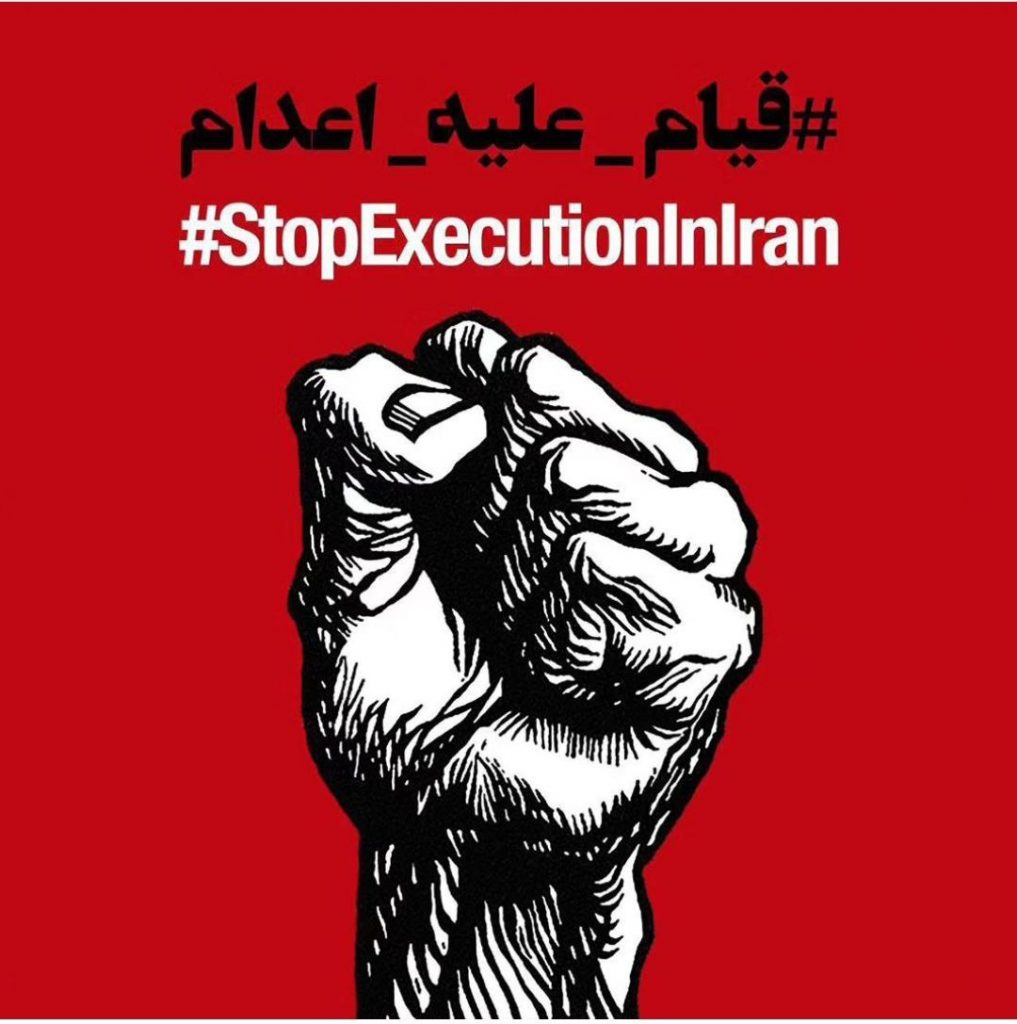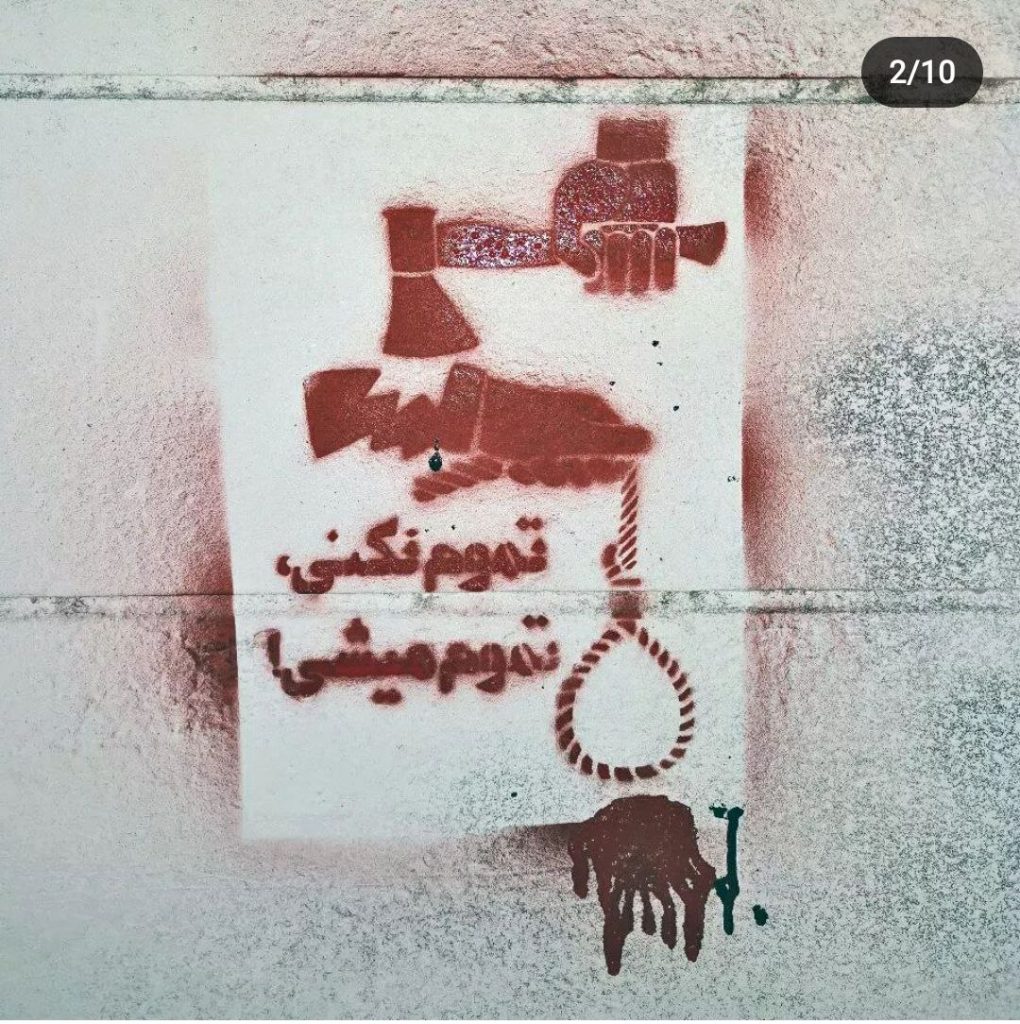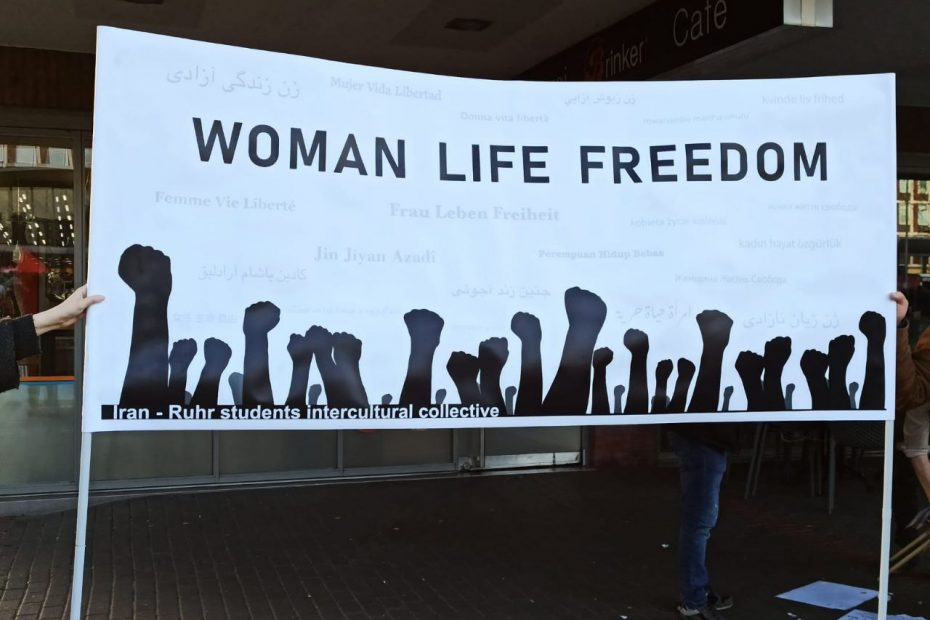A Text by Mahtab Mahboub
5 days ago, you could read on many news outlets that the Islamic regime in Iran “has executed one person, every six hours”[1]; but what does an hour mean for a person on the death row, for their family members and friends, for their fellow citizens, for the people who hear the news of their conviction on tv? Yet who watches TV in Iran these days? Only to see interrogators dressed as journalists interviewing tortured prisoners and recording their forced confessions. What does one hour mean to us in the diaspora, opening our eyes up in the morning to the news of executions and going to bed with the fear of reading about more bloodshed the day after? What is an hour to us who live here, dragging ourselves out of the ruins of the never-ending nonstop bloodshed at “home” to live our daily lives here, to function in our jobs, to take care of our dear ones? What does an hour mean after we read, and they live that only last Thursday 13 prisoners were executed?[2] What did time mean for our three brothers, Majid Kazemi, Saleh Mirhashemi and Saeed Yaqoubi when they gathered in the library of Isfahan prison to write on that piece of paper and smuggle it during a visit outside. They had written to us “Don’t let them kill us, we need your support”! Their words only echoed those of Navid Afkari, another protestor arrested during 2018 protests and executed in 2020. who had said “I realized they look for a neck for their rope!” Words that are to shake our world, our souls, motivate us to raise our voice, bring us back to our shared humanity in the face of injustice. What did time mean for people who gathered in front of the prison Isfahan to show their opposition to the executions, only to be tear gassed and beaten? All this at the time when Islamic Republic’s Ambassador was pointed as the chair of the UN Human Rights Council’s (UNHRC) 2023 Social Forum! Mocking the blood of our siblings shed on the streets in Iran. Mocking each moment of resistance that women still perform on the streets by not wearing compulsory Hijab, putting their bodies on the frontline of anything from being beaten to acid attacks to murder. The same women and their allies who still raise their voice only hours after they hear the news of executions that are supposed to intimidate them. „Death To the Republic Of Executions”, “Poverty, corruption, unaffordable prices, We will go on until toppling [the regime]”… They know their silence means they would be next…

However, like everything else in our capitalist, patriarchal societies executions are not distributed equally! It is always the most marginalized who are the most vulnerable against executions. From the 582 people executed in 2022, 30% belonged to Baluch minority, who represent 2-6% of the whole population; They were mostly charged with drug-related crimes in an extremely underdeveloped and discriminated against province where children are drowned in rivers and ponds, or their body parts are beaten off by animals while trying to get drinking water. In the last ten years, most prisoners executed for security related charges belonged to the ethnic Arab, Baluch, and Kurd minorities. Death penalty is used as part of the
systematic discrimination and extensive repression they are subjected to. The 7 young men who were executed in relation to the woman, life, freedom movement belonged to economically deprived families and were laborers themselves, living precarious lives with no hope for progress, but strong senses of justice and fight for freedom, and some had tried only to defend other younger (weaker) protestors. The execution of political prisoners has drawn attention to the injustice of death penalty for all crimes and for all, including for Afghanistani refugees in Iran and those born in Iran but are not issued IDs, especially in Baluchistan. In 2014, a group of political and human right activists launched a campaign called “Step by Step to Stop Death Penalty”. Most these activists are imprisoned now; including Narges Mohammadi who has recently receive PEN America’s Freedom to Write Award; but their message being amplified by larger numbers of people inside and outside Iran. The less the Iranian regime and the so-called international community wants to hear the voices of victims and their families, the more it is on US to raise our voice for woman, for life and for freedom.
Stop Executions in Iran!
#Jin_Jiyan_Azadi

[1] https://www.newarab.com/news/iran-hangs-one-person-almost-every-six-hours
